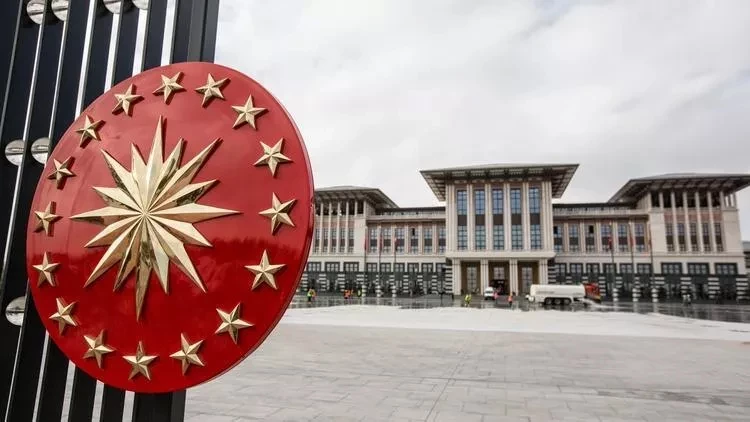
Quantum, 6G, and Digital Lira tops Türkiye’s national tech agenda
Türkiye's 2026 Annual Presidential Program, published on October 30, 2025, reveals an ambitious national technology strategy. While high-profile goals like 6G, Quantum Computing, and a Digital Lira signal a major leap, they are juxtaposed with the nation's 2023 R&D expenditure, which stood at just 1.32% of its GDP. The program aims to bridge this gap by prioritizing the digitalization of SMEs and boosting the pipeline of qualified R&D personnel in key industries.
Türkiye’s strategic technology roadmap has been solidified with the “2026 Annual Presidential Program,” approved and published in the Official Gazette on October 30, 2025. Detailed under the pillars of “Competitive Production with Green and Digital Transformation” and “Science, Technology, and Innovation,” the program outlines a comprehensive strategy centered on digital transformation and technological sovereignty across all sectors, from public finance and manufacturing to defense.
A Digital Overhaul for Public Finance: AI-Powered Governance
The program signals a significant modernization of public services, placing artificial intelligence and digitalization at the heart of its governance strategy, particularly in public finance and taxation:
- Contactless Tax Offices: A “contactless and paperless” tax office model will be implemented, fully digitalizing citizen-facing services.
- AI in Fiscal Oversight: The fight against the informal economy will be intensified using advanced technologies. AI and big data analytics will power a risk-oriented approach to tax audits and economic analysis.
- RADAR and “New GİB”: The existing Risk Analysis Evaluation Research (RADAR) system will be enhanced with AI-driven next-generation risk scenarios and data models. A new “Digital Taxpayer Operations Project (New GİB)” will be rolled out, leveraging AI for taxpayer services.
- Infrastructure Modernization: The Turkish Revenue Administration’s (GİB) IT systems will be comprehensively renewed to upgrade its physical, human, and technological capacities for the digital era.
Targeting Frontier Tech: 6G, Quantum, and Cybersecurity
The 2026 program confirms Türkiye’s ambition to transition from a technology consumer to a producer of frontier technologies:
- Next-Generation Telecoms: While supporting domestic R&D for 5G applications in vertical sectors like agriculture, transport, and energy, the program officially initiates R&D and solution development for 6G technologies.
- Domestic Microelectronics: The plan includes strengthening domestic design and production infrastructure for microelectronics, a sector of high strategic importance.
- Critical Technology Production: Domestic production of hardware and software for ecosystems in AI, cybersecurity, quantum computing, and the Internet of Things (IoT) will be actively supported.
The defense industry is positioned as a key driver of this technological leap, with a 2026 domesticity target of 83%. The program prioritizes R&D in quantum technologies, AI, and autonomous systems. In cybersecurity, concrete steps include the localization of Zero Trust Network Access (ZTNA) products and the promotion of domestic security solutions across public institutions.
The Future of Finance: FinTech and the “Digital Lira”
The financial sector is a cornerstone of the program’s digital agenda, headlined by the planned development and launch of a “Digital Lira.”
- Digital Lira (CBDC): The legal and regulatory framework for the Central Bank Digital Currency (CBDC), or Digital Lira, will be finalized to prepare for its public rollout and adoption.
- Digital Currency for Securities: The program explicitly outlines “proof-of-concept” studies to test the use of the Digital Lira in the settlement of “tokenized securities.”
- FinTech Talent Pool: To address the human capital need, specialized certification programs will be launched in partnership with the “Istanbul Finance and Technology Base” to train a workforce skilled in FinTech software development.
- Innovation and Efficiency: A “Regulatory Sandbox” will be established for FinTech startups. The program also aims to lower operational costs for financial institutions by promoting the use of “community cloud” infrastructure.
Digitalizing Industry: A Focus on SMEs
The program identifies the digital transformation of the manufacturing sector as essential for national competitiveness, with a clear focus on small and medium-sized enterprises (SMEs):
- Interest-Free Digitalization Loans for SMEs: Through the “SME Digital Transformation Support Program,” manufacturing SMEs will be offered interest-free credit to finance investments in AI, robotics, big data, and other digital technologies.
- Technology Integration: The integration of digital technologies into manufacturing processes will be broadly encouraged.
- Support Ecosystems: Access to finance, consultancy, and training for SMEs will be facilitated through structures like the “European Digital Innovation Hubs (ADIHs)” and an expanded network of “Model Factories.”
The Core Challenge: Bridging the R&D Gap
Despite the program’s ambitious technology goals, a significant challenge remains: the current level of investment in research and development. With R&D expenditure at just 1.32% of GDP in 2023, the gap between the existing foundation and the desired technological leap is substantial.
The 2026 program aims to address this fundamental challenge directly:
- Special incentives will be provided for the employment of PhD-qualified researchers in the industrial sector.
- Funding and support for postgraduate students in basic sciences will be increased.
- Collaborations and joint projects with qualified Turkish academics and researchers working abroad will be actively developed to strengthen the national innovation ecosystem.






